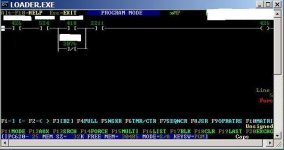Yes, true. But also you could not give your reply until you thought of an output (response), what it would be, what it would say, and then figured out what inputs (arguements) would then support that reply (output).
I did not intend this to be a "which comes first" type of discussion. Rather that a PLC output is similar to a goal, a purpose, the action that completes the task. To solve that task or that goal, first a clear idea of the goal is needed, what it does and how it works. Then the rest of the logic follows easily.
I did not intend this to be a "which comes first" type of discussion. Rather that a PLC output is similar to a goal, a purpose, the action that completes the task. To solve that task or that goal, first a clear idea of the goal is needed, what it does and how it works. Then the rest of the logic follows easily.
Last edited:





